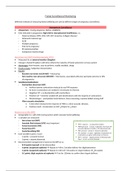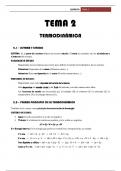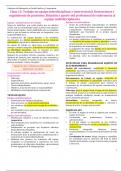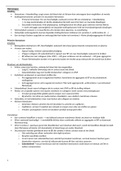Title: Henry VIII: The Complex Legacy of England's Renaissance Monarch
Introduction:
Henry VIII, the second Tudor monarch of England, is a figure of immense
historical significance, his reign marked by a complex interplay of personal
ambition, political manoeuvring, and religious upheaval. Often remembered for
his six marriages and the break from Rome, Henry's reign encompasses far more
than these sensational aspects. This essay delves into the multifaceted legacy of
Henry VIII, exploring his political achievements, religious transformations,
cultural impact, and the enduring controversies that surround his rule.
Political Ambition and Consolidation of Power:
Ascending to the throne in 1509, Henry VIII inherited a realm recovering from the
Wars of the Roses. Determined to assert royal authority, he embarked on
ambitious projects to centralize power. His dissolution of the monasteries in the
1530s not only bolstered the royal treasury but also dismantled a potent rival to
the crown's influence. Additionally, Henry's adept manipulation of Parliament and
the Privy Council expanded royal prerogative, setting precedents for future
monarchs.
Foreign Policy and Diplomacy:
Henry VIII's reign witnessed England's emergence as a major player on the
European stage. His marriages strategically aligned England with powerful
dynasties, most notably the marriage to Catherine of Aragon, which solidified an
alliance with Spain. However, his desire for a male heir led to the annulment of
this marriage and England's estrangement from Rome, catalyzing the English
Reformation. Furthermore, Henry's military campaigns against France asserted
England's military prowess but strained the treasury, setting the stage for future
financial challenges.
Religious Transformations and the English Reformation:
The break from Rome, spurred by Henry's desire for an annulment and his
conflict with the Pope over the authority of the Church, marked a pivotal moment
in English history. The establishment of the Church of England, with the monarch
as its supreme head, transformed the religious landscape of England. While
initially a political maneuver, the English Reformation had profound religious and
cultural ramifications, leading to the dissolution of monasteries, the translation of
the Bible into English, and the emergence of Protestantism alongside Catholicism
within England.
Cultural Patronage and Renaissance Influence:
Introduction:
Henry VIII, the second Tudor monarch of England, is a figure of immense
historical significance, his reign marked by a complex interplay of personal
ambition, political manoeuvring, and religious upheaval. Often remembered for
his six marriages and the break from Rome, Henry's reign encompasses far more
than these sensational aspects. This essay delves into the multifaceted legacy of
Henry VIII, exploring his political achievements, religious transformations,
cultural impact, and the enduring controversies that surround his rule.
Political Ambition and Consolidation of Power:
Ascending to the throne in 1509, Henry VIII inherited a realm recovering from the
Wars of the Roses. Determined to assert royal authority, he embarked on
ambitious projects to centralize power. His dissolution of the monasteries in the
1530s not only bolstered the royal treasury but also dismantled a potent rival to
the crown's influence. Additionally, Henry's adept manipulation of Parliament and
the Privy Council expanded royal prerogative, setting precedents for future
monarchs.
Foreign Policy and Diplomacy:
Henry VIII's reign witnessed England's emergence as a major player on the
European stage. His marriages strategically aligned England with powerful
dynasties, most notably the marriage to Catherine of Aragon, which solidified an
alliance with Spain. However, his desire for a male heir led to the annulment of
this marriage and England's estrangement from Rome, catalyzing the English
Reformation. Furthermore, Henry's military campaigns against France asserted
England's military prowess but strained the treasury, setting the stage for future
financial challenges.
Religious Transformations and the English Reformation:
The break from Rome, spurred by Henry's desire for an annulment and his
conflict with the Pope over the authority of the Church, marked a pivotal moment
in English history. The establishment of the Church of England, with the monarch
as its supreme head, transformed the religious landscape of England. While
initially a political maneuver, the English Reformation had profound religious and
cultural ramifications, leading to the dissolution of monasteries, the translation of
the Bible into English, and the emergence of Protestantism alongside Catholicism
within England.
Cultural Patronage and Renaissance Influence:











